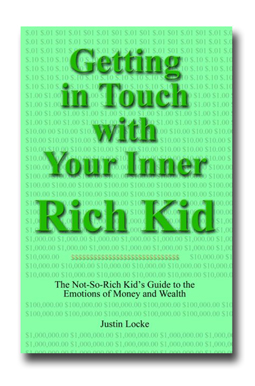In my recent book, “Getting in Touch with Your Inner Rich Kid,” I talk a lot about how rich kids have a great deal of trust in their environment, while poor kids tend to live in a world filled with mistrust.
Trust itself is a theoretical concept, it’s a feeling anyone can have, so, given that the entire monetary system is based on trust, why would anyone embrace mistrust? Well I think I have an answer.
If you live in a poor community, there may be some people you can trust, but then, there are also a lot that you can’t. In that case, it is a lot easier, and a lot simpler, to just not trust anyone, rather than have to sift through every single resume. If you are more likely to encounter untrustworthy people than trustworthy people, a general policy of mitrust towards everyone from the get-go is a big time saver.
The second big appeal of mistrust is, it creates an immediate sense of superiority. Labeling all the people around you as “untrustworthy” makes you feel immediately superior to this morally defective mass of humanity. It’s not as good as having people around you that you can trust, but it’s better than nothing.
When we turn on the TV or the radio, we are endlessly told about people who have acted in an untrustworthy manner. They may be leaders of major companies or people in high office, but no matter, untrustworthy actions always lead the nightly news. Trustworthy people are seldom even mentioned.
Even when these allegations are overblown, or even baseless, it still appeals, because 1) the broad brush of mistrust simplifies complicated issues, and at least seems to offer a quick and easy dismissive resolution to the emotional conflict we may have with people who are in positions of power and 2) in the act of completely condemning these people as morally defective untrustworthy people, we create a delicious internal illusion of being morally superior, because now, no matter how powerful they are, they no longer have “our trust.” It’s a little like firing them.
The trouble with mistrust is, no matter how good it feels, it is extremely unprofitable. While the people who promulgate all this “bad news” make money by drawing attention to themselves, with the exception of people in the security business, I am having trouble thinking of any other situation where mistrust leads to more money than trust.

Trust is hard because it has lots of levels and subtle nuances. Trusting people exposes our own vulnerability. But the monetary system, as well as our most important relationships, are all based on trust. It is very easy to be drawn into a state of mistrust, because it looks like a simple fix to complex problems, and it makes us feel superior, but in the end, it never makes any money. In fact, like so many elements of “poor kid thinking,” it perpetuates being poor.
© Justin Locke
